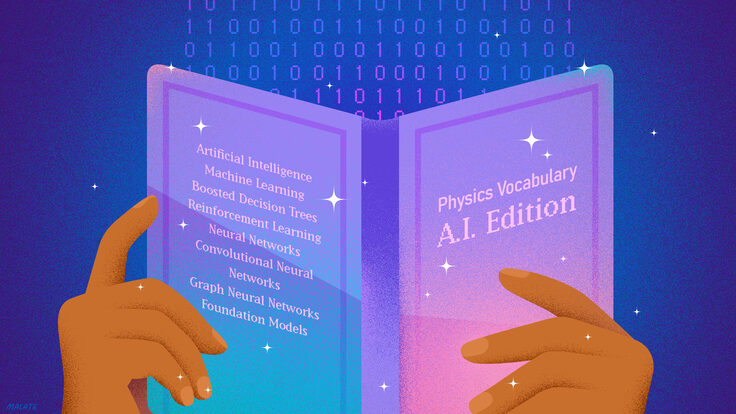In naming Neil Turok as its new executive director, Canada's Perimeter Institute for Theoretical Physics acquires far more than a leading theoretical physicist. Turok is also the founder of the African Institute of Mathematical Sciences in Cape Town, which graduates 50 students per year from a rigorous, 10-month program. His goal is to create 15 more such institutes over the next five years to seed Africa with brilliant, well-trained people who can contribute to its intellectual and economic development. Perimeter, he says, resonates with that vision.
"This is one of the questions I insisted upon when I was interviewed for the position," Turok told me earlier today by phone from South Africa. "I hope to link this work at the Perimeter Institute to the work I do in Africa, because basically there is an awful lot of common spirit between these two. When I met with [Perimeter founder and board chairman] Mike Lazaridis and had a heart-to-heart about this, we discovered we are very much on the same wavelength."
Turok is director of the Centre for Theoretical Cosmology at Cambridge University, where he also holds the Chair of Mathematical Physics. His research, in the simplest terms, involves understanding what occurred around the time of the big bang. Perhaps, he suggests, we live in an endless universe in which the big bang occurs not once, but multiple times--a result of our three-dimensional world colliding with another, parallel world that is just a fraction of an atom's width away. This work, done in collaboration with Paul Steinhardt at Princeton, is described in a book they wrote for a popular audience, Endless Universe: Beyond the Big Bang. You can see a public lecture he gave on the subject here; more details are on his home page, and Cosmic Log's Alan Boyle has a nice Q&A with Turok and Lazaridis here.
Turok was also one of three 2008 recipients of the TED Prize. TED, which stands for Technology, Entertainment, Design, has been bringing together what it calls "the world's most fascinating thinkers and doers" to give talks at an annual conference since 1984. From the group's Web site:
The TED Prize is designed to leverage the TED Community's exceptional array of talent and resources. It is awarded annually to three exceptional individuals who each receive $100,000 and, much more important, the granting of "One Wish to Change the World." After several months of preparation, they unveil their wish at an award ceremony held during the TED Conference. These wishes have led to collaborative initiatives with far-reaching impact.
In his talk at the TED conference in February, Turok described his African upbringing. His parents were jailed for resisting South Africa's apartheid government. After their release, the family lived as refugees in Kenya and Tanzania, where he says he had a amazing childhood--short on money but rich in friends and outdoor experiences. The family moved to London so he could attend high school, and he returned at 17 to work as a volunteer teacher in Lesotho, a tiny country surrounded by South Africa.
Eighty percent of the men in Lesotho worked in mines just over the border, where conditions were brutal. Nevertheless, he said, "I was welcomed with incredible hospitality and warmth. But the kids were the best part. The kids were amazing--extremely eager and often very bright."
When asked to estimate the height of a building, for instance, most of his students set out trying to measure it with a ruler. But one little boy from one of the poorest families in the village began scribbling with chalk on the pavement; he had measured the height of one brick, counted the bricks and was multiplying to get the height. Turok was impressed. An adult miner, home on leave, told Turok his favorite subject in school had been Shakespeare, and proceeded to recite some.
"These and many similar experiences convinced me that there are just tons of bright kids in Africa--inventive kids, intellectual kids, and starved of opportunity. And if Africa's going to get fixed, it's by them, not by us."
All the aid that's been poured into Africa over the years has failed to put the continent on its feet, Turok said. His institute--created in an old art deco hotel in a seedy part of Cape Town--focuses on skills such as mathematical modeling that are needed to enter the modern world. The 48 students who graduated last June all went on to enroll in masters degree or PhD programs.
AIMS plans to open a second institute in Nigeria in July, and four more sites have been identified in Sudan, Ghana, Uganda, and Madagascar. This Sunday it is scheduled to launch its Next Einstein initiative at a Cape Town event that includes talks by Nobel Prize winners George Smoot and David Gross, NASA Director Michael Griffin and physicist Stephen Hawking. It will be Hawking's first public lecture in Africa.
What AIMS and the Perimeter Institute have in common, Turok told me, is that both understand the importance of basic science in the service of humanity, and both draw brilliant people from many countries and cultures to work together.
Turok says he would like to create a graduate-level program at Perimeter that enrolls perhaps 20 to 30 students at a time and attracts the best lecturers from all over the world, "a highly intense course that gets them to the cutting edge of the subject in 10 months. Visiting lecturers could spend three weeks there, and would be fully looked after. It's a great place to visit."
He'd also like to expand an existing program in which researchers and their collaborators can leave their universities, with all the distractions of teaching and administrative duties, to spend a month or two at Perimeter intensively exploring an idea. The Institute's public-private financing frees researchers from the need to obtain grants for specific purposes, and its independent nature speeds decision-making, giving it "a great advantage, in its flexibility and ability to respond quickly to new developments.''
It's also an environment in which he expects his own research to flourish.
"I have already experienced it" as a visiting scientist, he says. "Perimeter Institute is a wonderful place to bring your collaborators and focus on your work. That encourages people to be ambitious and do great research. I'll be able to do even better science, I hope, because I won't be constrained as I was at Cambridge. One does not have to struggle as much for one's existence. We should be struggling at the frontiers of knowledge, not to get our next grant.''
Turok starts his new job October 1.








